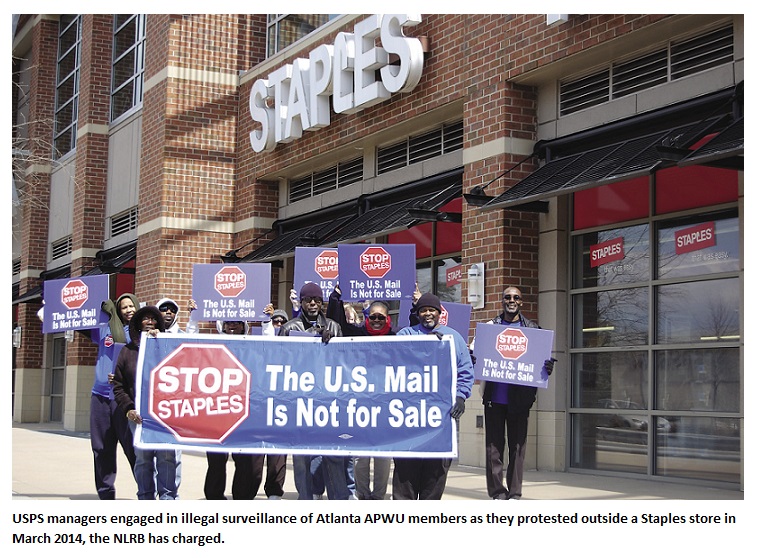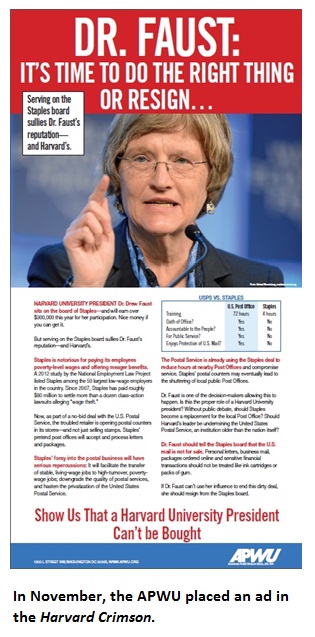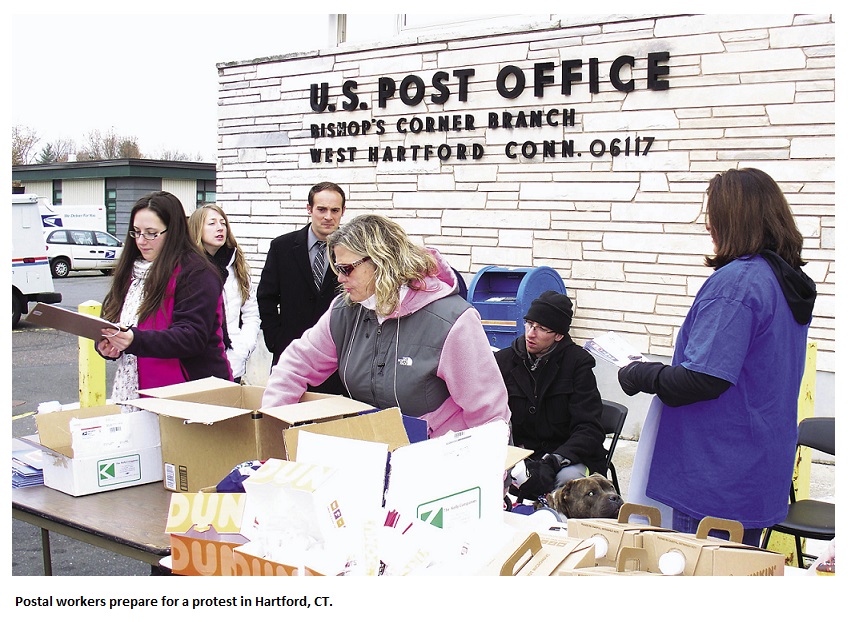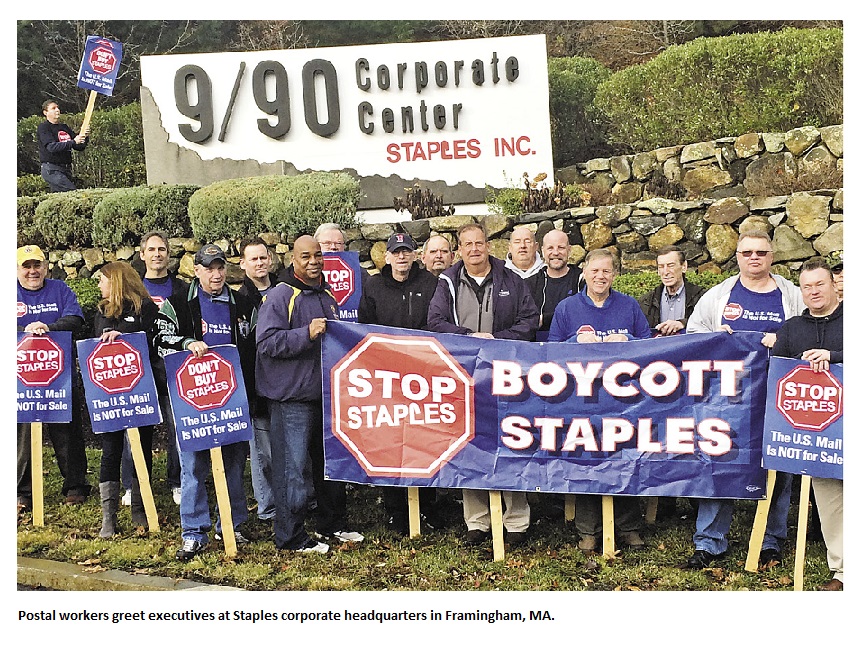December 18, 2014
Protests Build Support for Staples Boycott
This article appeared in the January-February 2015 issue of The American Postal Worker magazine.

In cities and towns around the country, postal workers and supporters continue to bring the Don’t Buy Staples message to the people. Protests are ongoing in Boston, Philadelphia, New York, Pittsburgh, Atlanta, and the San Francisco Bay Area.
And on two occasions Staples executives have been greeted by protestors at the company’s corporate headquarters in Framingham, MA.
In Boston, just 20 miles from Staples’ head office, postal workers and supporters have held frequent protests at two high-traffic stores – one just yards away from City Hall and another right off the campus of Harvard University. Many Boston residents and Harvard students have expressed support for the boycott and turned away from the stores.
 Student Solidarity
Student Solidarity
Harvard’s Student Labor Action Movement (SLAM) and the Massachusetts chapter of Jobs with Justice have joined the campaign against the no-bid deal between the USPS and Staples. Members of SLAM and other student organizations have voiced objections to the Staples deal in meetings with Harvard President Drew Faust, who serves on the Board of Directors of Staples.
Following the students’ challenges to the program, the APWU placed an ad in the Harvard Crimson, the university’s student newspaper, calling on Faust to pressure the company to end its foray into the postal business or resign from the board.
At least 60 news outlets wrote about the ad; Staples and Faust declined to comment.
Why the emphasis on Harvard? Staples CEO Ron Sargent is a Harvard graduate and he takes great pride in his strong ties to the university.
Hartford, Atlanta, Bay Area
More than 50 people attended a protest organized by the Greater Hartford Area Local on Nov. 16 at a West Hartford Staples, including supporters from the National Postal Mail Handlers Union, the National Association of Letter Carriers, Hartford Federation of Teachers, and the United Food & Commercial Workers. Passing drivers honked and waved in support.
Atlanta-area postal workers continue to hold protests at Staples stores across the region, including at the company’s Southeast Regional Headquarters in Canton. At least three stores in the Atlanta area that had the pilot program have now closed.
In early December, the National Labor Relations Board (NLRB) charged the Postal Service with engaging in illegal surveillance of employees while they protested at an Atlanta Staples store on March 4 and 9, 2014.
“Respondent has been interfering with, restraining, and coercing employees in the exercise of the rights guaranteed” in Section 7 of the National Labor Relations Act and the Postal Reorganization Act, the board charged. A hearing on the charge will be held on March 11.
 In the Bay Area alone there have been more than 300 protests since early 2014. At least four of the California Staples stores that were part of the pilot program have closed.
In the Bay Area alone there have been more than 300 protests since early 2014. At least four of the California Staples stores that were part of the pilot program have closed.
Organizers report that after explaining the boycott to Staples customers, they are overwhelmingly supportive and don’t enter the store.
CEO Ron Sargent continues to receive hundreds of postcards every day declaring that the signer will not shop at Staples until the company gets out of the mail business. More than 3,000 postcards were collected in Minnesota alone, where members of the Minneapolis Local united with other unions to get cards signed at retiree events and at the State Fair.
Staples’ Earnings Suffer
During a Nov. 20 teleconference with business reporters, Staples executives reported that for the seventh straight period, sales fell in the third-quarter of fiscal 2014. The report was especially significant because it included the all-important back-to-school season, when Staples typically sees its highest sales.
In light of falling sales, Staples announced it would accelerate plans to close stores, increasing the total closed in 2014 to 170.
“This serves as a reminder that we cannot allow our nation’s mail services to be handed over to private, for-profit businesses that make decisions based on their own bottom line and not on the needs of the people,” said APWU President Mark Dimondstein. “Staples can close stores and cut service without any public input. The U.S. Postal Service belongs to the people.”




